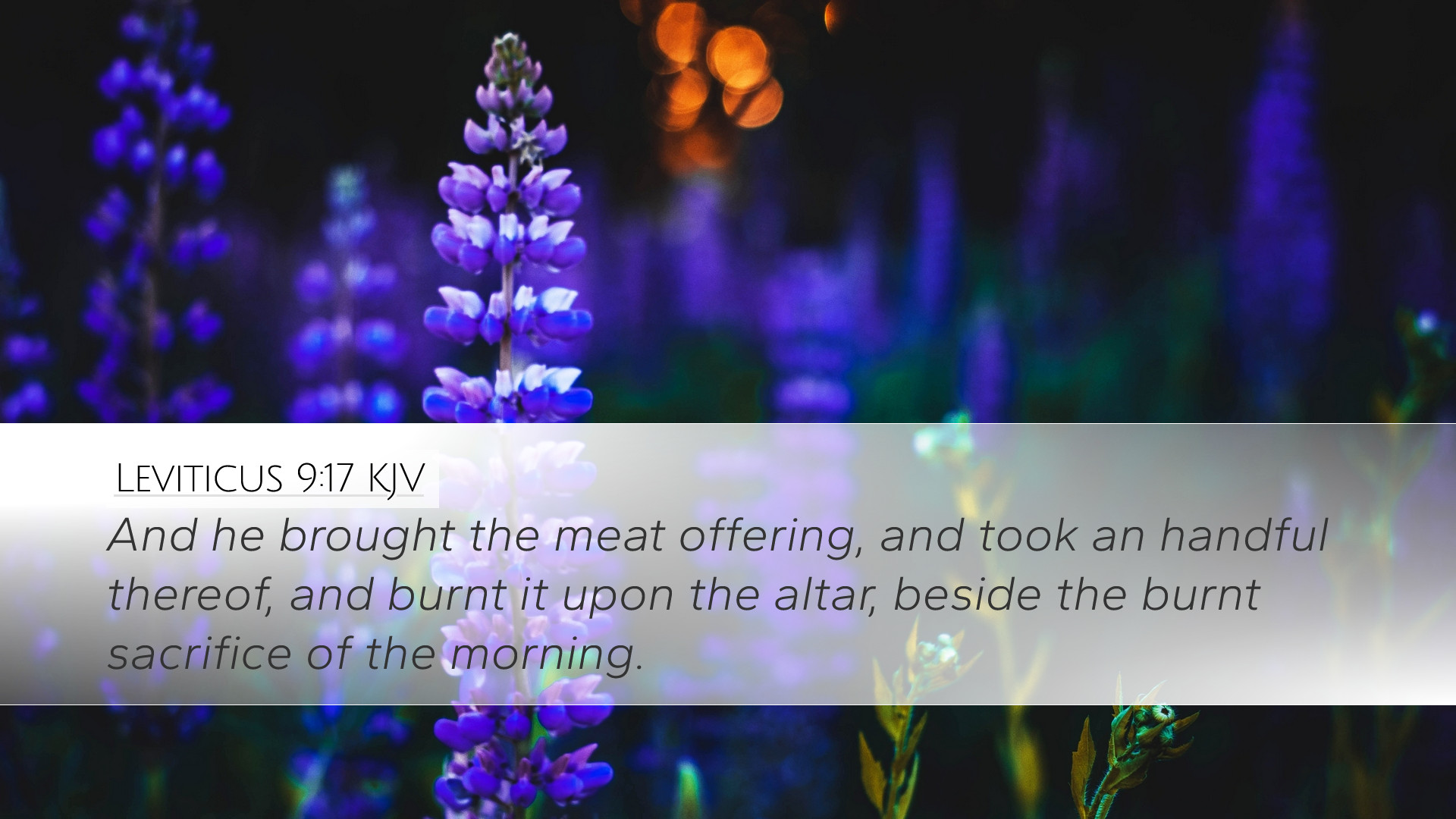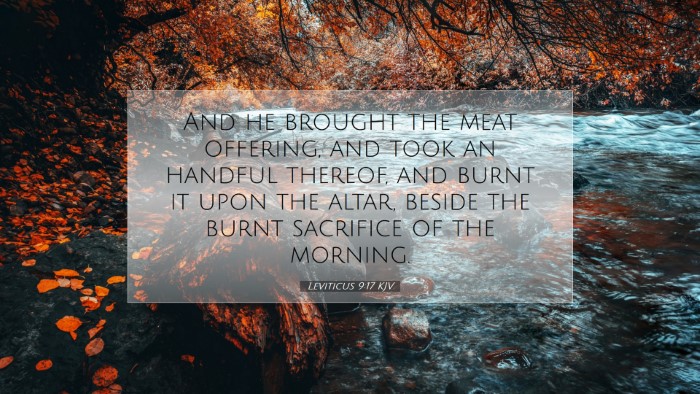Commentary on Leviticus 9:17
Leviticus 9:17: "And he brought the meat offering, and took an handful thereof, and burned it upon the altar, beside the burnt sacrifice of the morning."
Introduction
The book of Leviticus serves as a crucial manual for the priests of Israel, detailing their duties, the sacrificial system, and the holiness required for approaching God. Leviticus 9 marks a significant moment in Israel's history as the culmination of the priestly ordination described in the previous chapters. This commentary aims to explore the implications of the meat offering within the context of worship and priesthood.
Contextual Analysis
Leviticus 9 occurs after the anointing and consecration of Aaron and his sons, who are established as the inaugural priests of Israel. The offerings described in this chapter initiate the formal worship practices that will characterize the Israelite community. The offerings serve as a means of atonement, expression of gratitude, and communion with God.
Understanding the Meat Offering
The Meat Offering (also known as the Grain Offering):
- The term "meat" in this context refers to food offerings rather than just animal flesh.
- The meat offering symbolizes dedication and acknowledgment of God's provision.
The Priestly Role
Matthew Henry emphasizes that the role of the priest at this juncture is one of mediation between the people and God. The act of presenting the meat offering was not only a ritualistic necessity but also a declaration of the priest's responsibilities to uphold the covenantal relationship between God and Israel.
Spiritual and Theological Significance
Albert Barnes highlights that the act of offering was an expression of worship that reinforced the need for divine approval. The burning of the meat offering upon the altar signified the offering being transformed into a pleasing aroma to God, symbolizing acceptance and fellowship.
Lessons for the Faithful
Adam Clarke points out that the importance of offerings in this context transcends mere ritual; it represents the heart of worship — true devotion to God. Congregations today can glean that our offerings of praise, service, and resources must come with a heart aligned with God’s will.
Conclusion
Leviticus 9:17 provides a profound insight into the nature of worship, sacrifice, and the priestly duty. For pastors, students, theologians, and Bible scholars, this scripture underscores the importance of approaching God with sincerity and reverence. As modern believers, reflecting on the significance of our offerings and worship can deepen our relationship with God, reminding us of Christ’s ultimate sacrifice as the fulfillment of the law.
Final Thoughts
In the light of Leviticus 9:17, we are urged to consider how our lives can reflect the spirit of the offerings given. As we seek to serve and honour God today amidst our own sacrificial acts, may we remain ever mindful of the holiness of our calling and the joy that comes from offering our whole selves to Him.


